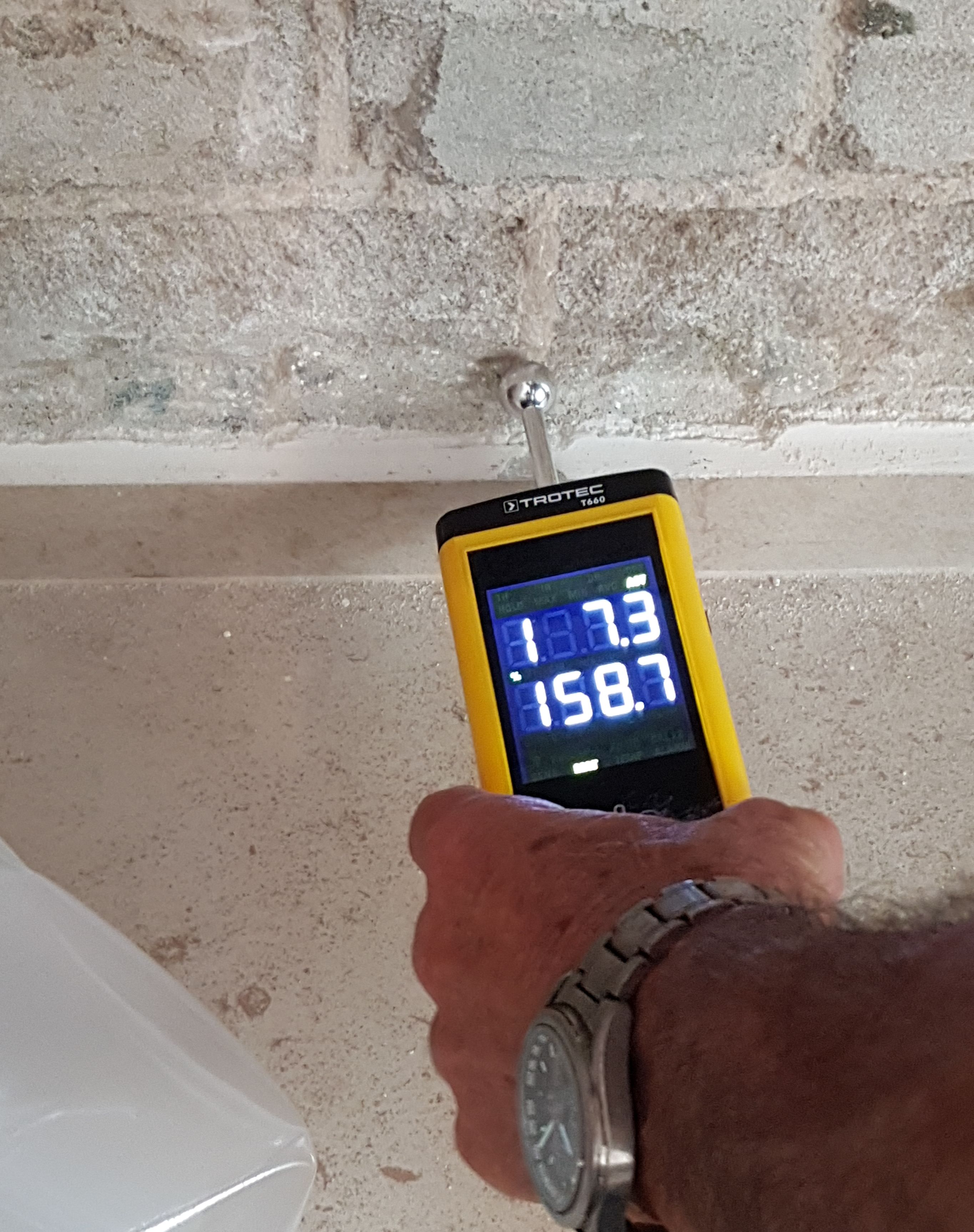The Ultimate Overview to Wetness Meters: A Comprehensive Overview and How They Can Conserve You Money
In the realm of structure maintenance, construction, and different markets, the significance of accurately gauging wetness levels can not be overstated. Dampness meters work as important tools in detecting and checking moisture content in products, helping in preventing pricey damages and making certain the high quality of products. Recognizing the subtleties of different types of wetness meters, their applications, and the possible cost-saving benefits they supply can be a game-changer for organizations and professionals alike. Uncovering how these gadgets can not only enhance procedures however also add to economic savings is a trip worth starting.
Types of Moisture Meters
One usual kind is the pin-type dampness meter, which gauges the electric resistance in between two pins placed into a material. Pinless moisture meters, on the various other hand, usage electro-magnetic sensing unit plates to scan a larger area without causing damages to the product's surface area.

Infrared dampness meters measure the thermal properties of a product to establish its moisture content non-invasively, making them valuable for applications where pin or pinless meters may not be appropriate. Comprehending the different kinds of dampness meters offered can aid industries select the most appropriate tool for their certain dampness measurement demands.

Benefits of Utilizing Moisture Meters
Moisture meters provide very useful advantages in precisely analyzing and keeping track of dampness degrees in diverse materials and atmospheres (Moisture Meter). Among the key advantages of utilizing wetness meters is the avoidance of possible damages brought on by excess moisture. By finding and addressing high wetness levels beforehand, dampness meters help to stop mold development, rot, and architectural damages in structures, saving both money and time on fixings. Additionally, wetness meters help in making certain the top quality of products throughout building and construction or production procedures. By accurately measuring moisture content, these tools help maintain the honesty of wood, drywall, concrete, and various other materials, decreasing the risk of failures or flaws.
Moreover, using moisture meters can lead to increased energy performance. In agricultural setups, dampness meters play a vital role in maximizing crop returns by making it possible for farmers to keep track of dirt moisture levels and make notified watering decisions.
Exactly How to Select the Right Moisture Meter
Choosing the appropriate wetness meter includes considering key variables such as material compatibility, dimension array, and calibration accuracy. When choosing a wetness meter, it's necessary to guarantee that the meter appropriates for the certain product you will certainly be testing. Different materials have varying electric buildings that can affect moisture readings, so selecting a meter developed for your product is vital for exact outcomes. Additionally, think about the measurement variety of the wetness meter. Make sure that the meter can identify moisture degrees within the variety needed for your applications. Calibration accuracy is one more important variable to maintain in mind. Select a wetness meter with reliable calibration to ensure exact and consistent readings. Some meters might need regular calibration modifications, so comprehending the calibration process is essential. By thoroughly reviewing these variables, you can pick a wetness meter that satisfies your needs and provides precise moisture dimensions for your tasks.
Correct Techniques for Wetness Meter Usage

Expense Financial Savings Through Moisture Meter Applications
Exactly how can the strategic usage of moisture meters lead to considerable price savings throughout different sectors? In the agriculture sector, dampness meters help in figuring out the optimum time for collecting crops, stopping excess or over-drying dampness that can affect the final item's quality.
In a similar way, in building and construction, moisture meters aid stop pricey damages by spotting dampness degrees in structure products, such as timber or concrete, which can bring about structural problems if not attended to without delay. By recognizing trouble locations early, contractors can take rehabilitative procedures to avoid substantial repair work or substitutes, ultimately saving money and time.
Furthermore, in the food processing sector, dampness meters are vital for checking product high quality and guaranteeing compliance with security policies. By precisely determining wetness web content in food products, manufacturers can protect against putridity, keep quality, and decrease waste, causing considerable price savings. Overall, the tactical application of dampness meters is a valuable financial investment that can bring about substantial expense decreases and improved efficiency across different sectors.
Conclusion
In verdict, wetness meters are valuable tools for measuring and discovering moisture levels in various materials. By using the right wetness meter and following proper strategies, individuals can successfully stop pricey problems triggered by excess moisture.
Wetness meters serve as vital devices in detecting and monitoring moisture material in materials, helping in avoiding expensive damages and making certain the top quality of products. Infrared moisture meters gauge Bonuses the thermal buildings of a product to identify its dampness material non-invasively, making them useful for applications where pin or pinless meters may not be appropriate.Wetness meters supply vital advantages in accurately checking and evaluating moisture levels in diverse materials and atmospheres. In farming settings, wetness meters play a critical function in optimizing plant yields by enabling farmers to check soil dampness Get More Info levels and make informed watering decisions.In verdict, wetness meters are valuable devices for measuring and detecting wetness levels in numerous products.
Comments on “The Ultimate Guide to Picking the Right Moisture Meter for Your Requirements”